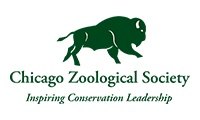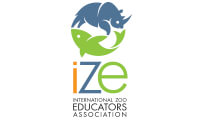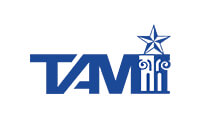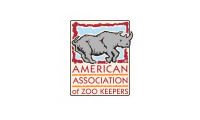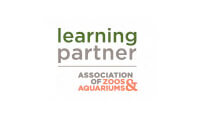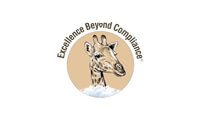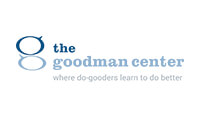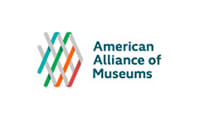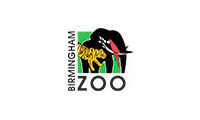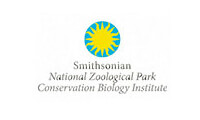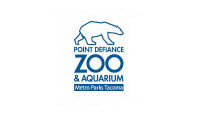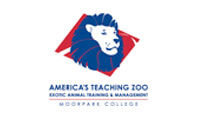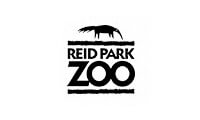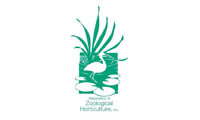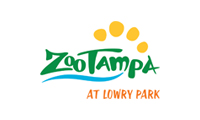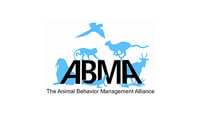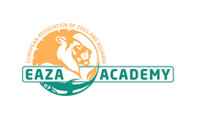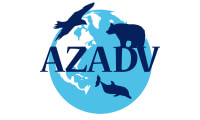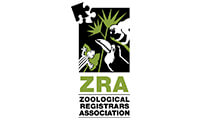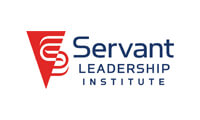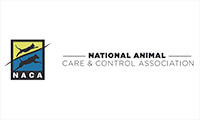Getting Better All the Time
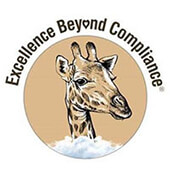 To keep ahead, each one of us, no matter what our task, must search for new and better methods – for even that which we now do well must be done better tomorrow.
To keep ahead, each one of us, no matter what our task, must search for new and better methods – for even that which we now do well must be done better tomorrow.
—James F. Bell
Loving (and Respecting) Animals Out Loud—Without Saying a Word
By James F. Gesualdi
When we love, we always strive to become better than we are. When we strive to become better than we are, everything around us becomes better, too.
—Paulo Coelho
Love understands love; it needs no talk!
—Frances Havergal
"Love out loud," read the white neon sign, lit up on the back wall of a local shop at 5 a.m., which I spotted on a recent 6-mile walk. And that message is profound "sign wisdom" for the pandemic era: make sure to express or say those dear things that you are thinking.
Let those you know, care about, and love hear the love you hold in your heart for them. Let others, including "strangers" who help along the way, feel the gratitude you have for their efforts in making your way in this world just a bit easier or somewhat better. Yes, "love out loud" now. One moment—this one—is all that we ever have. Make it count by expressing that love, gratitude, and appreciation we all yearn to experience. It is the right thing to do, and it enlarges the goodness extended to you and expressed by you.
The message emanating from that bright sign in the dark of the early morning was quite enough to make for a productive walk. Right thinking about the relationships that matter most in life is essential to right action in creating and living a good life.
A good life is also one of service. As finite and as precious as our time here on Earth is, our lives are imbued with greater meaning, significance even, when we live them to help others, including those nonhuman living beings we call animals.
A good life—one of rendering good and useful service—is a life well spent. It is a life of loving out loud without saying a word. In other words, good work and good works are simply what we do, day in and day out, "getting better all the time." In "loving out loud," we speak more clearly, and indeed more powerfully, than our words.
Communicating and doing
"Communicating" can help express compassion. "Doing" is compassion in action. Good work and good works on behalf of serving others, including animals, require effective communication and massive action. For the zoological community, messaging and doing in a manner enhancing "loving out loud" is the light showing us the way forward. (More on that later, after examining some recent Animal Welfare Act initiatives and practical ideas for good practices relating to them).
Proposed Contingency Plan Rule published—comments due August 24, 2021
The U.S. Department of Agriculture (USDA) Animal and Plant Health Inspection Service (APHIS) Animal Care Unit has published a proposed rule on contingency plans to lift the stay on the existing but unenforced regulations (e.g., 9 C.F.R. 2.134 for exhibitors): https://www.federalregister.gov/documents/2021/06/25/2021-13152/handling-of-animals-contingency-plans. The proposed rule includes some potential minor modifications relating to the timetable for implementation, staff training, and incorporating by reference an optional three-page Contingency Plan Program form available here: https://www.regulations.gov/document/APHIS-2020-0101-0005.
The form, which is very basic, notes the importance of the contingency planning process, and has a line for the licensee to sign acknowledging their responsibilities. Also included are likely contacts, potential triggering situations, tasks required, responsible person(s), and associated details. As such, the form may be helpful to compare with your own plan and to use in your own training.
Interestingly, the proposed rule would eliminate the requirement that an organization document staff participation in the required contingency plan training. While this may alleviate compliance-related recordkeeping (especially for larger organizations), it is strongly recommended that the agency maintain the requirement to document staff participation in contingency plan training, including updated training necessitated by any changes to the plan developed as result of a mandatory annual review. In the event the final rule does not require organizations to document staff participation in contingency plan training, enlightened zoological organizations should document and track staff contingency plan training. If a situation occurs giving rise to the need to act in accordance with a contingency plan and the safe and effective implementation of the plan, be sure you can demonstrate the adequacy and appropriateness of staff training in implementing the plan.
The agency stresses that contingency planning can help save animals' lives, assure the public that you are safeguarding animal welfare, conserve resources, and foster resilience and recovery. Show the world that you "love (and respect) animals out loud" and stay ahead of the unknown through robust contingency planning. For more resources on contingency planning and emergency preparedness, see the Zoo and Aquarium All Hazards Partnership website.
Don't fret, and avoid regret: things to know about the attending vet
The agency continued its outreach to attending veterinarians with recent webinars on "what all attending veterinarians need to know." Attending vets, and other veterinarians, should review the agency's dedicated webpage for attending veterinarians—https://www.aphis.usda.gov/aphis/ourfocus/animalwelfare/sa_attending_veterinarians—including the new tech note https://www.aphis.usda.gov/animal_welfare/downloads/ac-tech-note-attending-vet.pdf, and the webinar PowerPoint. The webinar video is posted on the agency's YouTube page, at https://youtu.be/jAtfrqHOehs. Zoological organization leaders, including board members, caregivers, and other professionals should take a look, as well.
The attending veterinarian is a role with specific responsibilities featured most prominently in the Animal Welfare Act (AWA) regulations. It is a defined term (9 C.F.R. 1.1), and has specific regulatory sections outlining its broad authority and expansive responsibilities (e.g., 9 C.F.R. 2.33 and 2.40, plus various other regulations).
Animal health and well-being are at the heart of all we do, and the very reason we do it. The attending vet is right at the center of this. Here are some suggested good practices for zoological organizations and attending veterinarians, after reflecting upon the webinar:
Respect the vet's authority regarding animal health and well-being, involved with all aspects of animal care and use. The vet has broad authority and oversight, pursuant to the regulations.
Develop and maintain good working relationships involving consultative processes, and a culture of collaboration. Then, ensure fully informed decision making (even when those decisions may be reserved for the vet), smoother implementation, and higher standards of care and professionalism.
Communication and coordination are key. Caregivers generally know the animals they devote their lives to helping better than anyone else. Observations, regular contact, and coordination of care, including delegation of certain things to staff, help the animals. The webinar PowerPoint has a lot of useful information on vet delegation of certain tasks to staff, and use of standardized protocols and treatments to maintain good standards of care.
Concerns and complaints. The agency is clearly cultivating its relationships with attending vets, many of whom are off site and part-time, to get them more fully engaged in AWA compliance, inspection support, and animal welfare. The agency encourages vets to contact inspectors and supervisors, email the agency, and even file animal welfare complaints. It is good that vets and others have multiple avenues for constructive expression in the name of helping animals. It is much better when enlightened and responsible zoological organizations provide multiple means of articulating, addressing, and resolving concerns. Animal and organizational protective measures include establishing animal welfare officers and animal welfare leadership groups, and making animals' interests, protection, and well-being an overriding priority that is fully integrated into your decision making. Regulated entities, and the agency itself in its outreach, should make clear that all caregivers, attending vets, and zoological leaders and professionals should strive to work in harmony on behalf of the animals within their care. "Loving (and respecting) animals out loud" requires us to always seek better ways to work together for animal interests, protection, and well-being.
Loving (and respecting) animals out loud for the zoological community. This started out with luminous words on a glowing sign in the back of a suburban downtown shop, on a dark morning walk. Those words also shine a light that can help us make our way in this world of ours, and its continual challenges, including concerns and criticisms of the zoological community.
Loving out loud in our relationships, as well as in our service on behalf of animals, is indispensable. Practical application in the face of expressions of concern and criticism from outside the zoological community is simple and straightforward.
Keeping our focus on the difference we can make for the animals in our care—and making that positive difference in their lives every day—is "loving (and respecting) animals out loud." Others can join us in contributing to make a difference. Caring for animals with our hearts and our hands, protecting and rescuing them, and helping them to be what they were created to be and do is the most powerful response we have.
Learn and grow from criticism and concerns, address them, and build upon good work and good works in conservation, education, outreach, research, and rescue. At the beginning and end of each day, and every moment in between, it is about what we do for the animals entrusted to our care. It is our basic, fundamental, and truest calling. Let's recommit ourselves and the zoological community to continuously expressing "loving (and respecting) animals out loud." May our right actions speak volumes for us and, more importantly, model a culture of care and compassion for animals and humans alike.
The parable of the good caregiver
It was nearing the end of another long, hot summer day. The caregiver had still more things to do than time left to do them, as well as a commitment to discharging their responsibilities to the animals they had lovingly devoted themselves to caring for every day.
A kindly looking guest approached, waved an unwieldy piece of crumpled newspaper, and seemed to challenge the caregiver to respond to the printed words on the opinion page. Those words forcefully called into question the very existence of zoological organizations.
Exhausted, overheated, and hungry, the caregiver, mindful that maintaining the trust of the public was nearly as important as the animals' quality of life, paused to take a breath and asked to see the paper. It was a much publicized and highly critical piece. Reading it made the caregiver somewhat uncomfortable because of a differing perspective from the author, though the caregiver shared some of the concerns articulated in the article. Upon finishing the piece, the caregiver thanked the guest for sharing this information, noted a deeply held, shared concern for the animals, acknowledged that they had some respectful differences, and indicated that this would be used to re-examine and improve the zoological organization's efforts.
The caregiver's words were brief and graciously offered. This stunned the guest. As the sun began to set on the day, the caregiver once more thanked the guest and simply said, "though this has been helpful and appreciated, there are other living beings here whose lives I am here to protect and improve, so I must get back to doing what matters most."
The guest was now utterly astonished. The guest turned, walked to the recycling bin, and deposited the crumpled newspaper. The good caregiver's words were few and thoughtfully presented, but "loving (and respecting) animals out loud" spoke directly to the guest's heart.
Even in moments of adversity, there is never a loss for words when communicating through "loving (and respecting) animals out loud."
People listen to words, but they emulate actions.
—Erin Hatzikostas
Each one of us matters, has a role to play, and makes a difference. Each one of us must take responsibility for our own lives, and above all, show respect and love for living things around us, especially each other.
—Jane Goodall
With a grateful heart for the untold joy MTV brought to this then teenage boy 40 years ago this week, and its contribution to a lifetime of learning to "see" things differently.. Thanks J.J., Nina, Martha, Mark and Alan!
© 2021 James F. Gesualdi, P.C. The opinions expressed herein are solely those of the author. This is not, nor should be construed as, legal advice.

